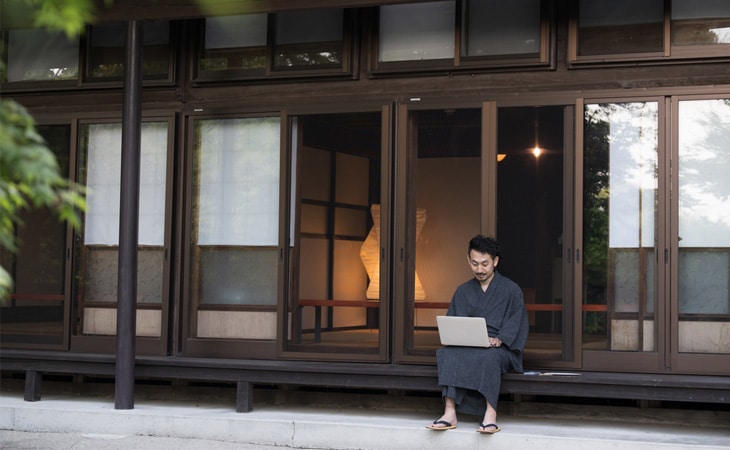Calculate Your Retirement Shortfall – Beginners Guide for Expats in Japan
Written by: David Rubenstein
Planning for retirement can be daunting, especially for expats living in Japan. Unique challenges such as navigating different financial systems, fluctuating exchange rates, and deciding whether to stay in Japan permanently or eventually move elsewhere make creating a solid retirement plan crucial.
Like any successful journey, your retirement strategy needs to start with the planning phase, as you can’t start on your way if you don’t know where you need to go. And for this, you need to know your retirement shortfall. This guide aims to simplify calculating your approximate shortfall, providing you with the essential steps to ensure a secure and enjoyable retirement.
Whether you dream of a peaceful life in the Japanese countryside or plan to travel the world, following these steps will help you achieve your retirement goals.
Step 1: Envision Your Ideal Retirement
Begin your retirement planning journey by envisioning what you want your retirement to look like. This is very important because everyone’s idea of an ideal retirement can be vastly different. Consider the following three key aspects:
- Retirement Age: Determine the age at which you realistically plan to retire or become financially independent. For most people, this is typically between 55 and 65. Consider your circumstances, such as your family situation and financial status. For example, if you have young children, you might need to work until they complete their education. You need to be realistic here, as giving yourself too short a time to invest will make your targets difficult to reach. The less time you give your money to compound, the more work you will need to put in. Conversely, you want to be realistic about when you will likely stop working. Although some people might say they want to work until they are 80, this may not be possible for health reasons you can’t control.

- Retirement Location: Decide where you plan to retire. As an expat in Japan, you may feel torn between staying in Japan and moving elsewhere. While you don’t need a definitive answer now, having a realistic idea of one or two most likely final destinations is crucial. The cost of living and tax implications vary significantly between countries, with retiring in the USA being more expensive than in parts of Southeast Asia, for example.
- Lifestyle: Consider the type of lifestyle you envision post-retirement. Do you want to maintain your current city lifestyle with frequent travel, or do you prefer a quieter, more frugal life in the Japanese countryside? Your desired lifestyle will significantly impact the money you need each year to sustain it. Once you have a clearer picture of your retirement lifestyle, estimate how much money you would need annually to support that lifestyle if you retire today.
Step 2: Calculate Your Retirement Targets
With the information about when, where, and how much you need per year, you can move on to the exciting part: calculating your retirement target. This is the total amount of money you need to save by the time you retire to generate your desired retirement income.
Generating Retirement Income: The goal is to have enough money saved and invested to generate sufficient revenue to cover your annual income needs. A rule of thumb is the 4% withdrawal rule, which suggests you can withdraw 4% of your retirement savings annually without depleting your funds for at least 30 years. For instance, if you have 150,000,000 JPY in retirement savings, you can withdraw 4% each year, giving you 6,000,000 JPY to live on annually.
Using Our Free Retirement Calculator: Our free online retirement calculator makes calculating your retirement targets super easy. Simply input your numbers and experiment with different target amounts to see what works best.
Retirement Saving Calculator
Current projected savings
Retirement savings needed
This is the total amount you should be contributing each month including your current monthly contribution.
Ready to talk about your retirement?
Book a free consultation with us today
Considerations for Your Calculations:
- Post-Retirement Expenses: You may not need to replicate your income level after retirement. Expenses like mortgage payments, raising children, and retirement savings will no longer apply. A rule of thumb is that 60-70% of your current income should suffice for maintaining your lifestyle post-retirement.
- Inflation: Consider inflation when calculating your retirement needs. The value of money decreases over time, and the cost of living rises. An income of 8,000,000 JPY per year may not be as comfortable in 20 years as it is today. We recommend using a 3% annual inflation figure for most countries. For Japan, a slightly lower inflation of 2% might make more sense.
- Japanese Pension System / NISA: If you work in Japan, you are likely contributing to the Japanese pension system. However, we recommend not relying too heavily on this when planning your retirement. You might not benefit substantially as an expat unless you contribute for many years. Even then, national pensions like Japan’s are not designed to be your primary source of retirement income. Likewise, NISA plans are unlikely to be the sole answer to your retirement needs as they have annual and have a total contribution cap of JPY 18M. In addition, for expats who are likely to move away from Japan in the future, more portable, international solutions might make more sense. US nationals will also need US solutions, as they can’t enjoy the tax benefits offered through NISA or IDECO in Japan and also have specific restrictions on what they can invest in due to US tax obligations.
Review and Adjust Your Plan:
Once you have calculated your retirement targets, congratulate yourself! Knowing your goals is the first step on any great journey. However, remember that your retirement targets are guideposts and should be reviewed periodically to ensure they align with your changing circumstances and that you remain on track.
How can you make up the shortfall?
Compensating for this retirement shortfall is simple: increase your ownership of assets, such as stocks, mutual funds, ETFs, businesses, commodities and real estate. Owning assets is the best way to fight inflation and grow wealth in preparation for retirement. Historically, the global stock market offers the most comprehensive and attractive opportunities.
The most potent tool you will have at your disposal to help you achieve these large targets is compound growth, so the sooner you start, the better.
For a more comprehensive approach, you can also book a free financial consultation with one of our advisors. We can help you determine how much you will likely need, what options you have, and formulate a strategy to make it happen. Our free retirement calculator even has a feature allowing you to share your calculations with us if you wish to.
Argentum is Japan’s premier licensed financial planning firm serving the expat community. We advise on portable and tax-efficient private retirement plans for the modern mobile workforce. We’d be happy to help you get started on a fulfilling financial future.
Argentum Wealth does not provide tax, legal or accounting advice. This material has been prepared for informational purposes only, and is not intended to provide, and should not be relied on for, tax, legal or accounting advice. You should consult your own tax, legal and accounting advisors before engaging in any transaction.
Argentum Wealth Management is licensed through the Japanese Financial Services Authority to give financial advice. The FSA strongly recommends that you only receive financial advice and services from a locally licensed and regulated firm.





